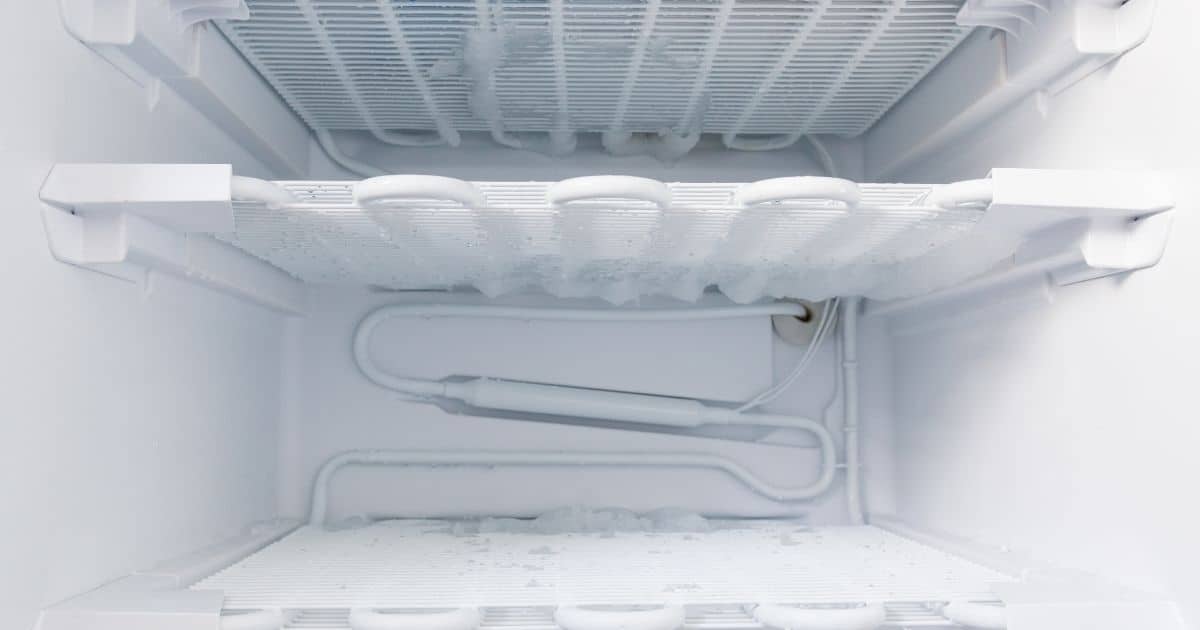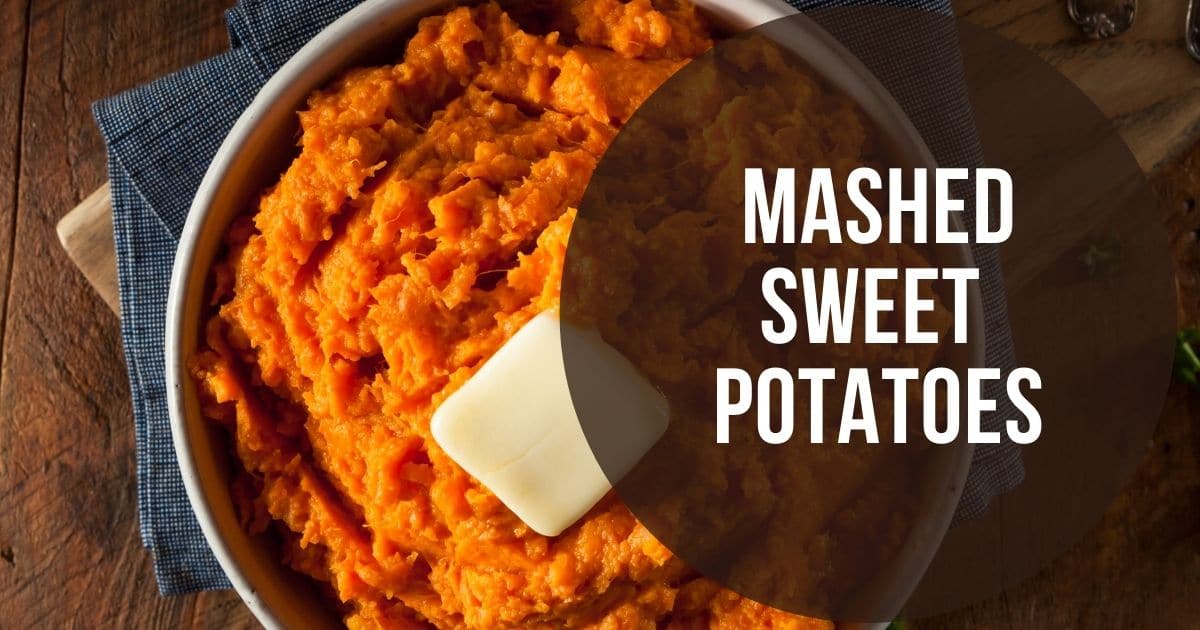Can You Freeze Sweet Potatoes?

“I cook rarely, but I’ve kind of got two or three dishes that I stick to. I do a great sweet potato and a lentil curry” – Chris O’Dowd
Unlike Chris O’ Dowd, I cook all the time. However, I still rely heavily on sweet potatoes, because they taste great, cook very fast, and are very nutritious.
Let’s take a look at why great-tasting sweet potatoes should be an essential part of your diet.
- Sweet potatoes contribute to your gut health by preventing constipation, helping to absorb water, and keeping the lining of your intestines healthy.
- Just like carrots, sweet potatoes are great for the eyes, thanks to the presence of beta-carotene which the body converts into Vitamin A. This particular vitamin is known to improve the receptors in your eyes.
- Beyond Vitamin A, sweet potatoes are a super-food that contains almost all of the nutrients your body needs. One sweet potato contains 112 calories, 0.07 grams of fat, 26 grams of carbohydrates, 2 grams of protein, and 3.9 grams of fiber.
- Sweet potatoes can help manage stress and improve your mood. Lack of magnesium can be a risk for anxiety, stress, and depression. With sweet potatoes, you get one-third of your daily magnesium dose.
- Carotenoids found in sweet potatoes keep your cells protected from the damage of day-to-day activities. (Source: Allrecipes.com, webmd.com)
I could go on and on about the benefits of sweet potatoes. Honestly, what is there not to love? They are healthy, they taste great, and are super convenient to incorporate into your diet.
These sweet roots are available year-round, but you’ll find them plentiful from August through November. However, you may have a few extra sweet potatoes that you’re not sure what to do with.
You might ask yourself, Can You Freeze Sweet Potatoes? The answer is yes, you can freeze sweet potatoes for up to 12 months. However, freezing sweet potatoes comes with a process.
I’ll be discussing the details of how to freeze sweet potatoes extensively in this piece, the processes, what to do for best results, and what to avoid. Let’s delve in together.
Can You Freeze Sweet Potatoes Raw?
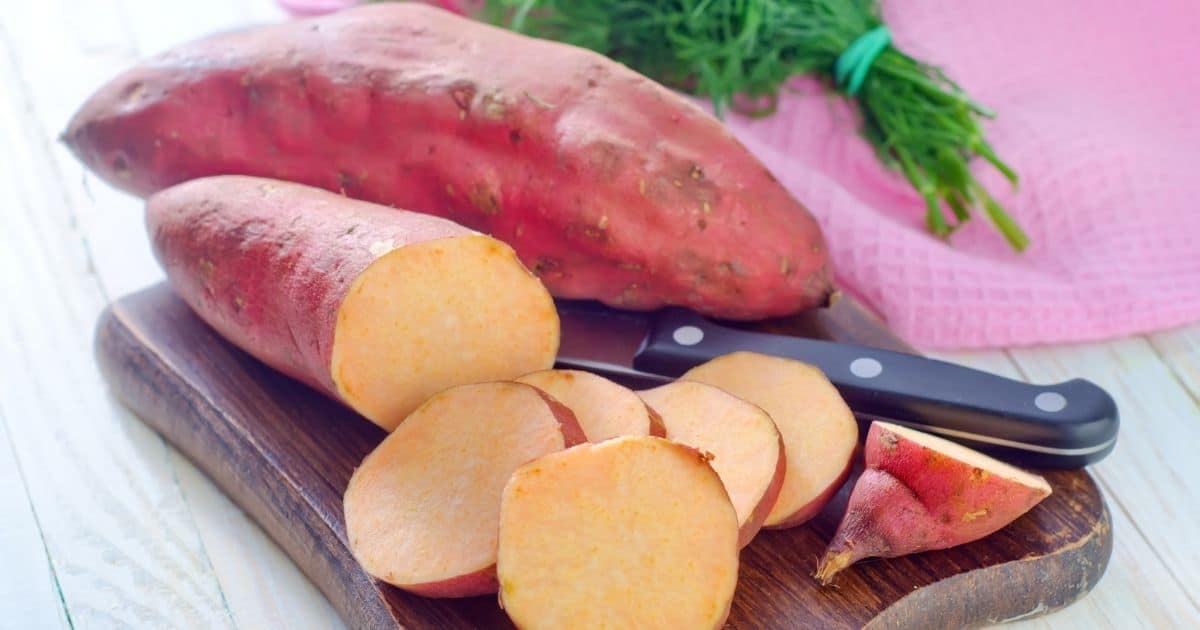
No, you cannot freeze sweet potatoes raw. They need to be blanch before freezing or you run the risk that they become mushy and lose flavour upon thawing.
Just like with apples, sweet potatoes will change color after a few minutes of cutting through them. This happens when you cut potatoes because the enzyme polyphenol oxidase gets exposed to oxygen. Exposure to oxygen converts the phenolic compounds in the enzyme to o-quinones. The o-quinones react with amino acids present in the potatoes to produce the brown colors you see on cut potatoes. (Source: ScientificAmerican.com)
Hence, we need to blanch raw sweet potatoes before freezing them to reduce the enzymes that will cause the sweet potatoes to change texture, flavor, and color over time.
Blanching is a process that helps to preserve the flavor, texture, color, and nutritional value of foods. This is especially true with vegetables. Blanching is the process of immersing food in boiling water briefly (not more than a few minutes, two minutes maximum), which is then put in an ice-water bath to cool the food off quickly.
According to the National Center for Home Food Preservation, it is important to blanch vegetables before freezing them. This puts a stop to the enzymatic activities and gets rid of surface organisms and dirt. Sweet potato is a vegetable, and it is a sweet-tasting large root that belongs to the morning glory family.
Is It Okay To Freeze Cooked Sweet Potatoes?
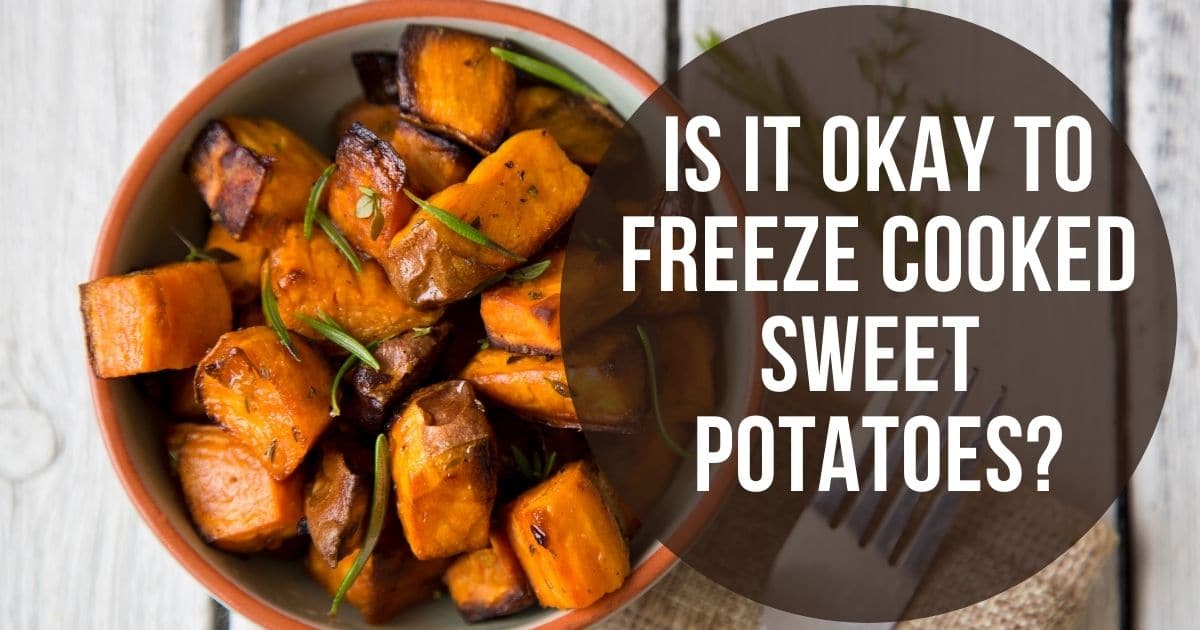
Yes, it is absolutely fine to freeze cooked sweet potatoes, in fact it is best you freeze your sweet potatoes either boil, mash, or bake instead of raw for best results.
Boiling Sweet Potatoes
Here are the steps to boil your sweet potatoes before freezing them.
Step 1
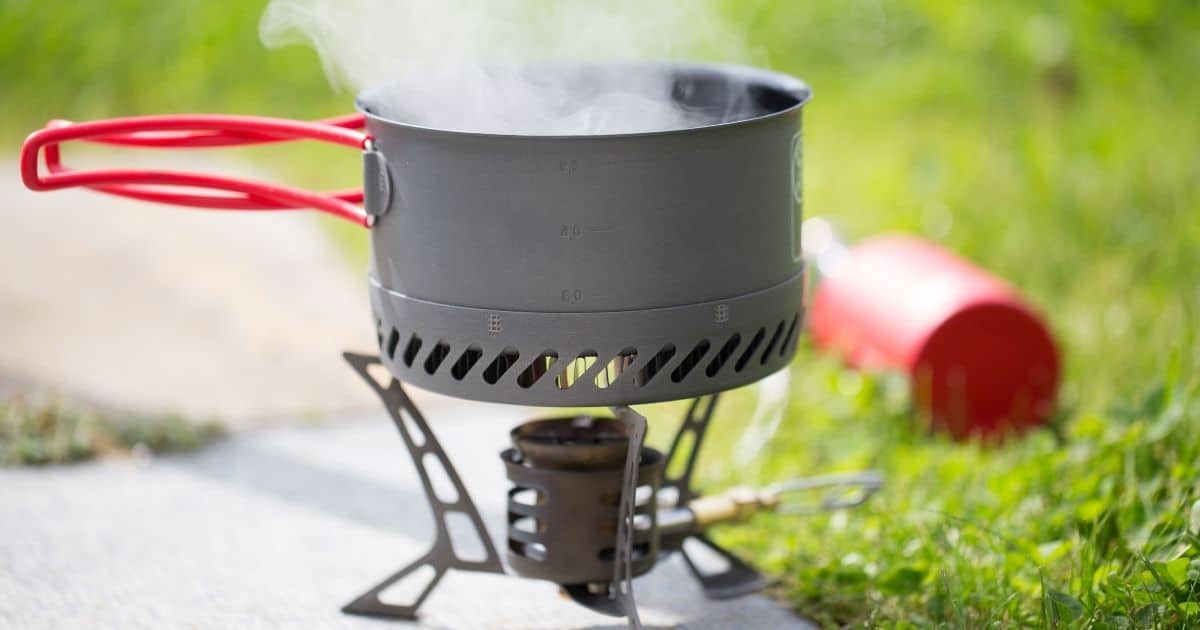
Fill a large pot with water and bring it to a boil.
Step 2
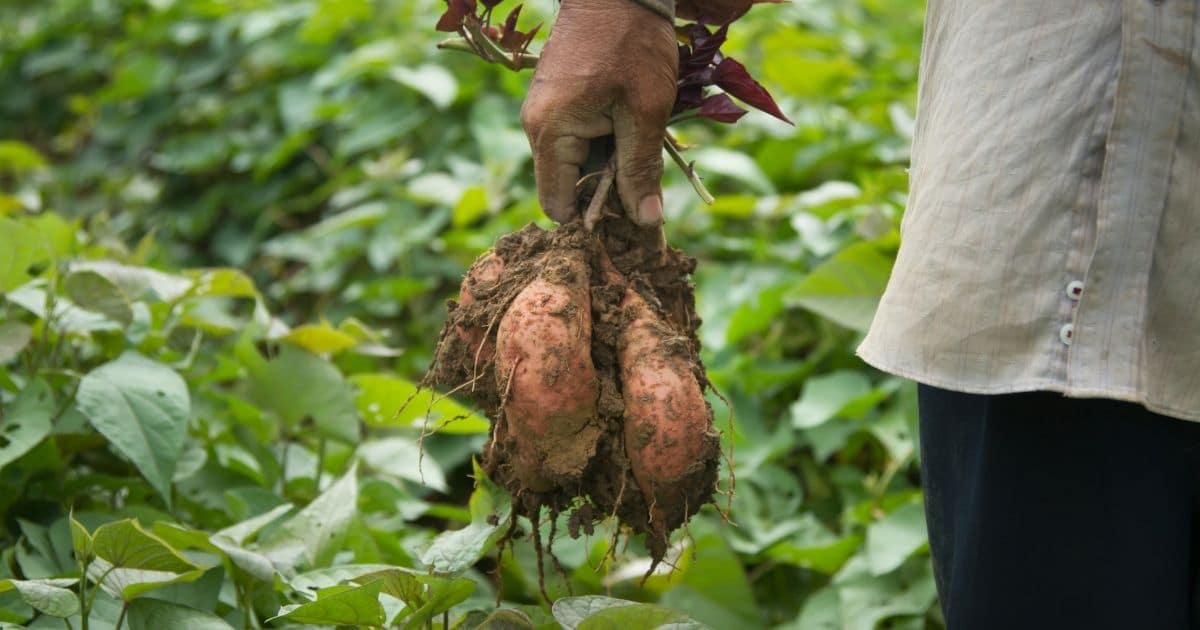
Scrub the sweet potatoes to get rid of any surface dirt.
Step 3
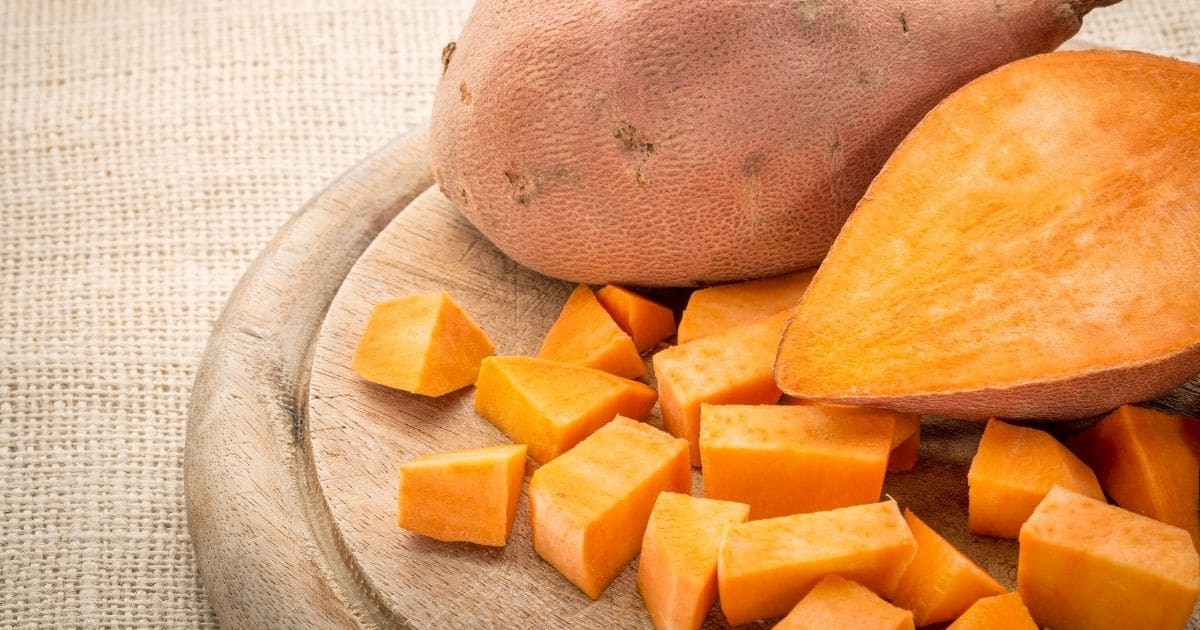
Cut up the sweet potatoes, dice, or slice them, and ensure the cut sizes are relatively the same to allow even cooking. Unless the recipe you plan to use your sweet potatoes in asks that you remove the skin, cook it with the skin on. The skin removes easily once cooked.
Step 4
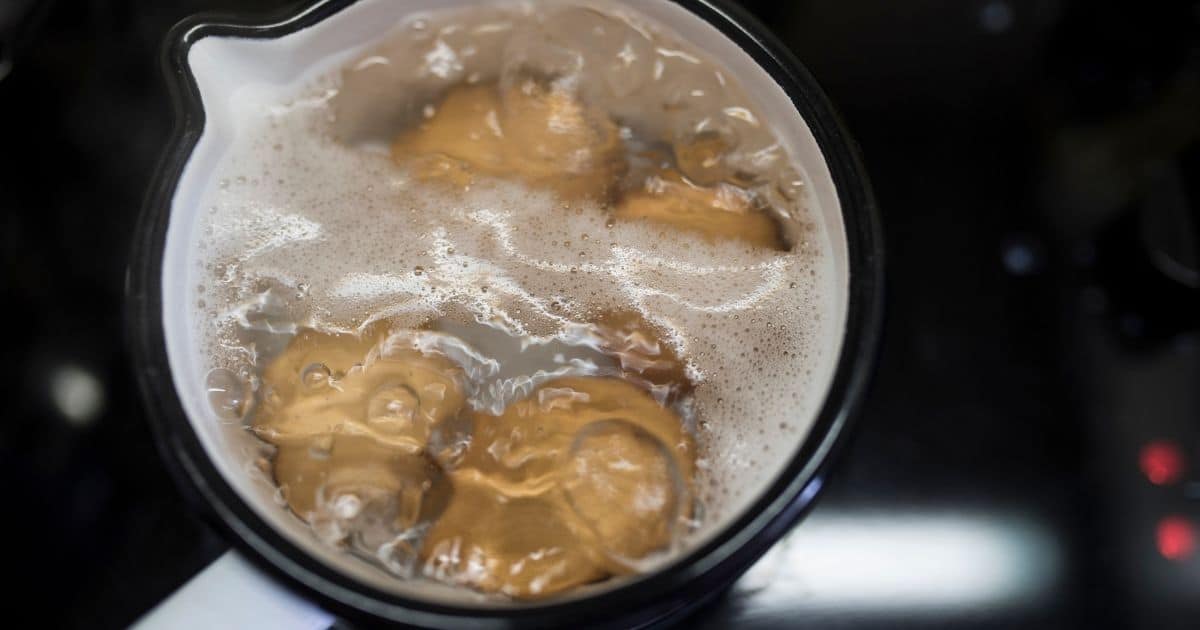
Put the sweet potatoes in the boiling water and boil them for ten to fifteen minutes, or until they start to become tender yet still firm.
Step 5
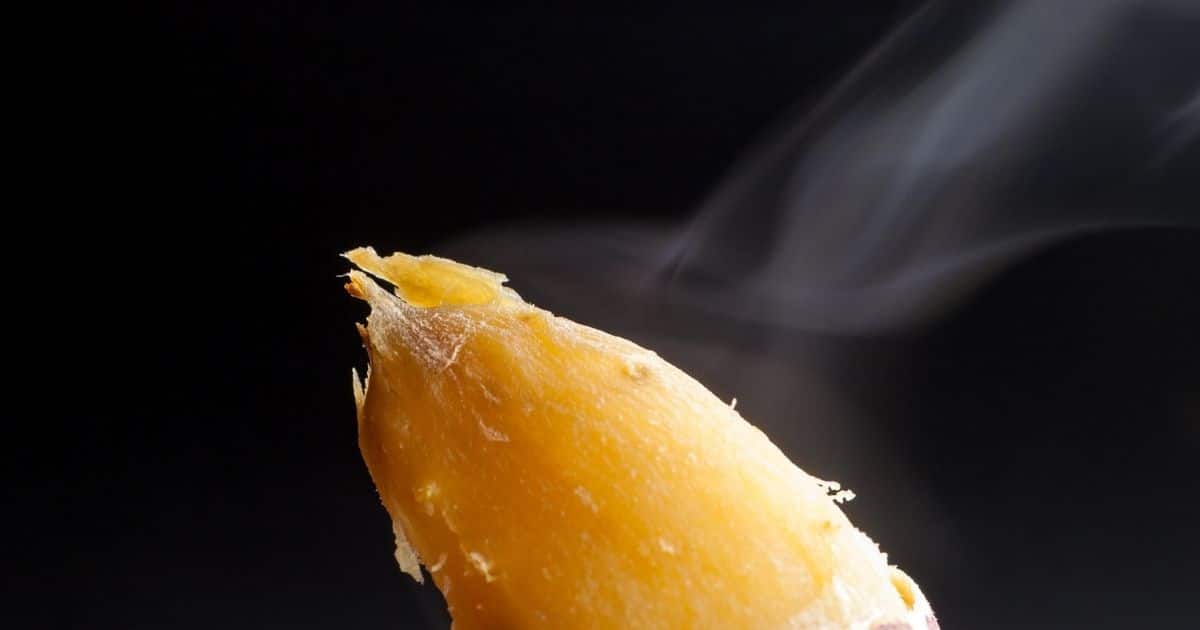
Remove the boiled sweet potatoes and leave them at room temperature for no more than two hours until they become cool. The Food and Drug Administration (FDA) recommends that food should not be left out at room temperature for more than 2 hours to prevent food poisoning.
Boiling sweet potatoes before freezing them provides you with frozen sweet potatoes that fit the most common uses and recipes.
Baking is also an excellent way to cook your sweet potatoes before freezing them. Unlike boiling, this may take more time but it makes great-tasting sweet potatoes.
Baking Sweet Potatoes
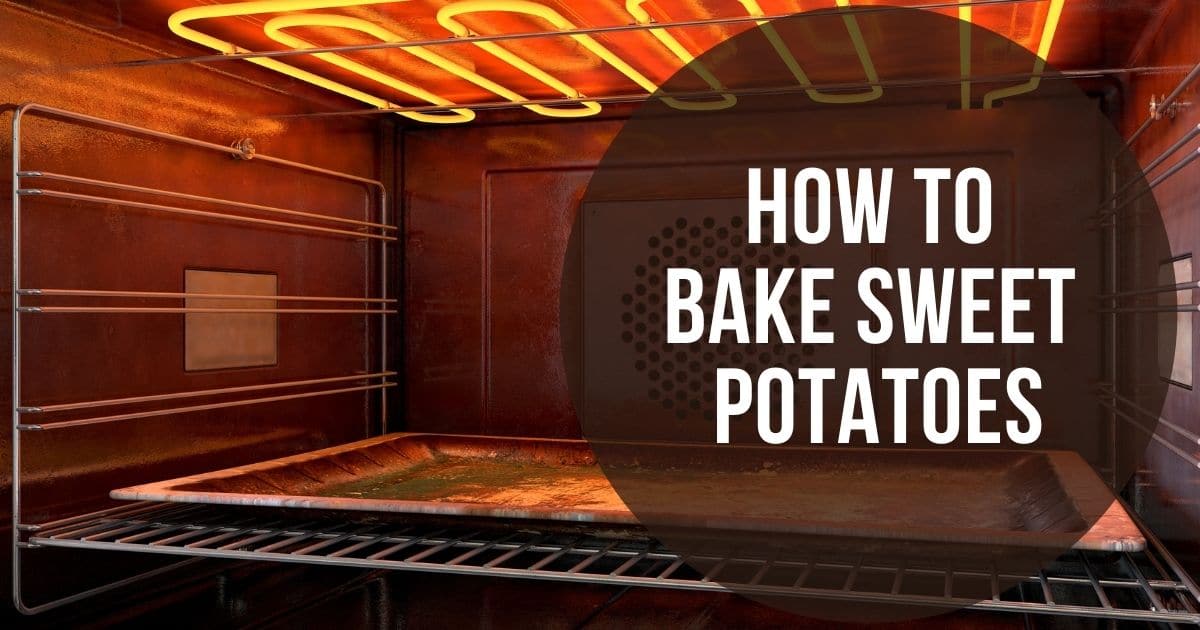
To bake sweet potatoes, follow these steps.
Step 1
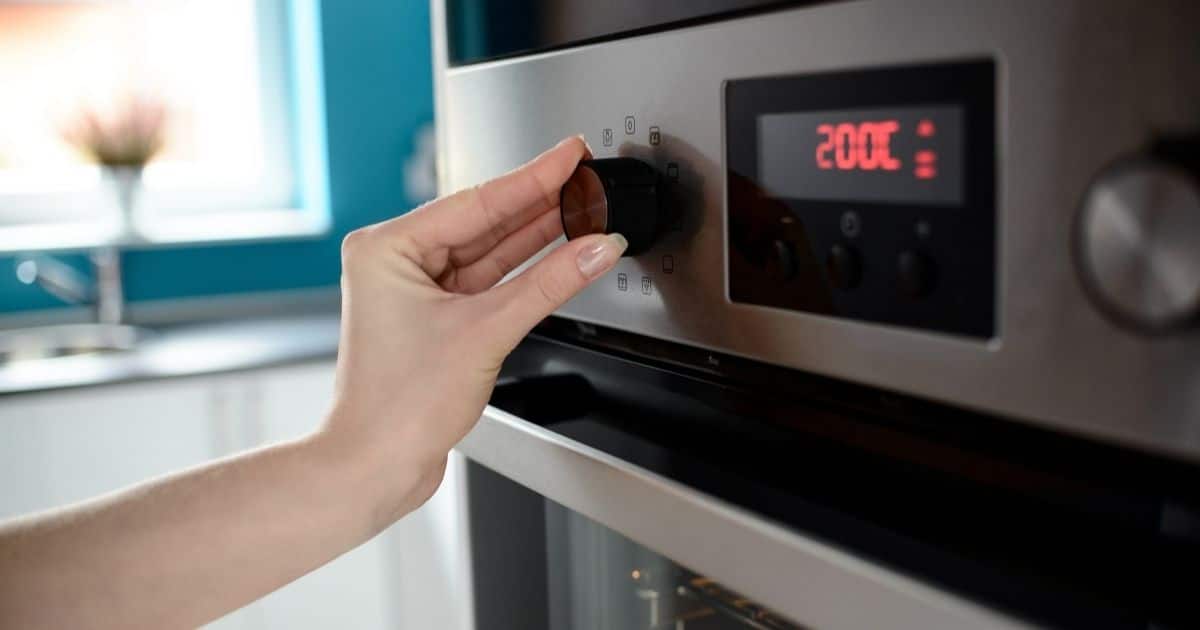
Turn on the oven and heat it to about 400 degrees. Line the bottom of the oven with a heavy-duty foil or put a big baking pan there.
Step 2
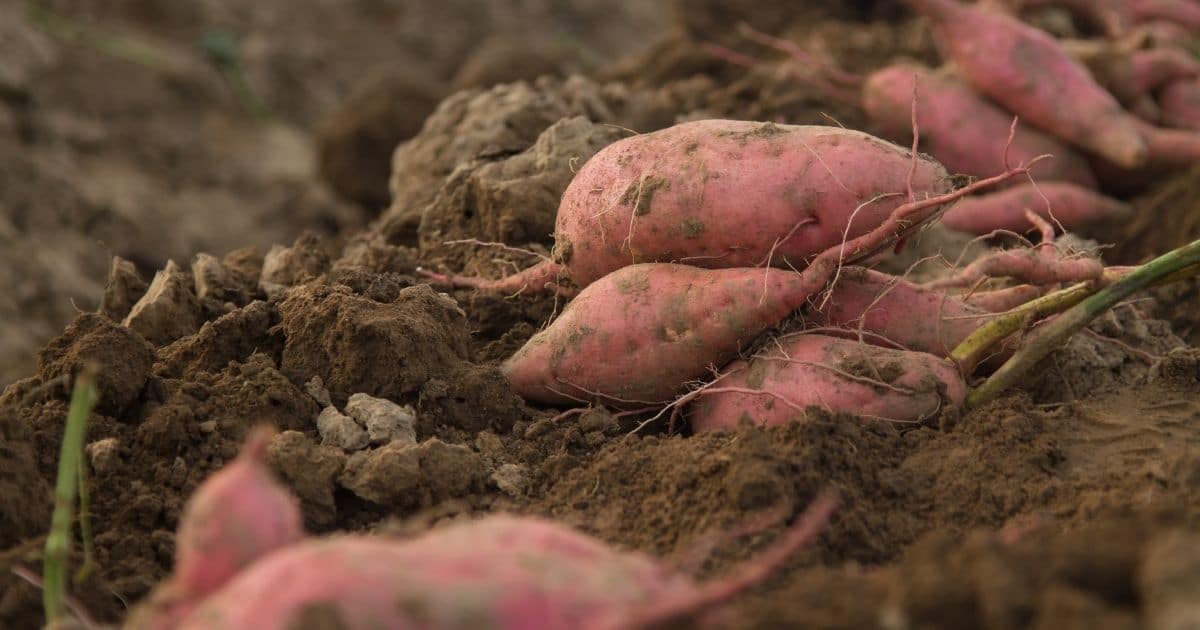
Scrub the sweet potatoes to get rid of surface dirt, and then make a few holes in them by using a fork.
Step 3

Place the sweet potatoes on the oven rack and leave them to bake for about one hour to one and a half hours, or until they get tender.
Step 4
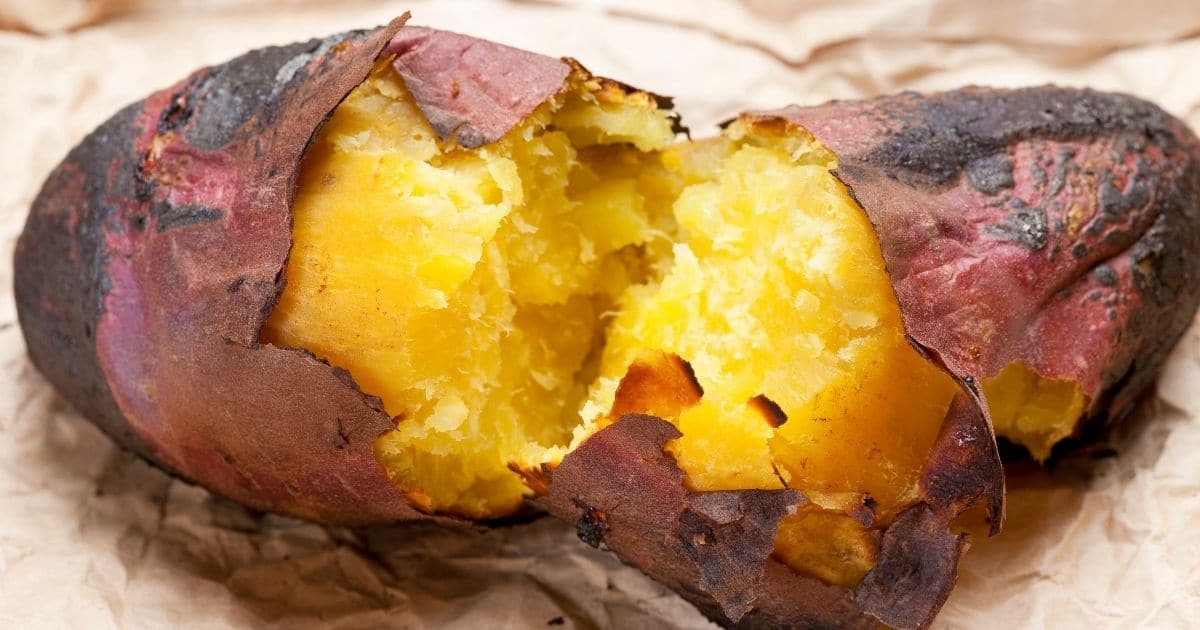
Take the baked sweet potatoes out of the oven and leave them at room temperature to cool down.
Mashing Sweet Potatoes
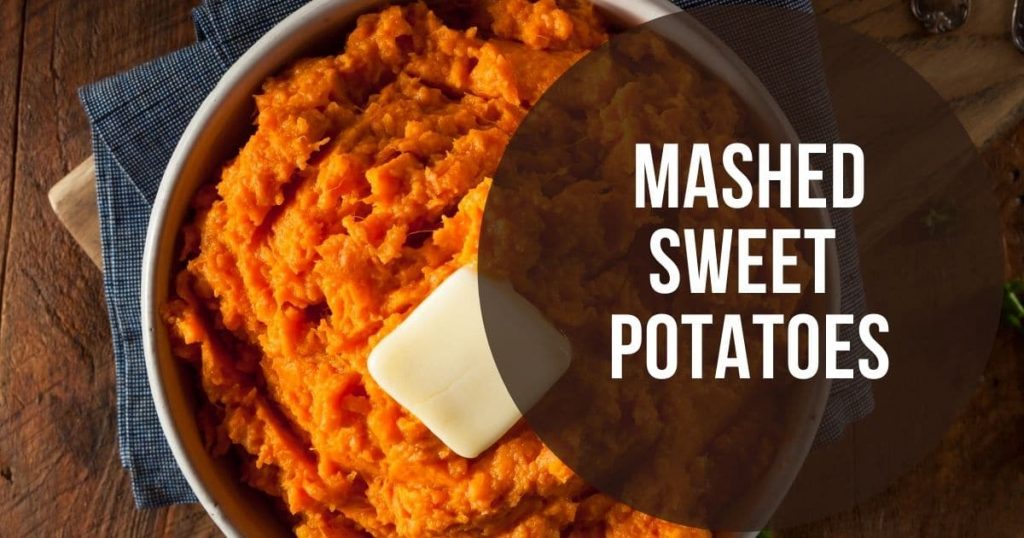
Mashing is another way to cook sweet potatoes before freezing them. Mashed sweet potatoes can be enjoyed with maple syrup, honey, and other sweeteners of your choice. Mashed sweet potatoes can also be used in puddings, bread, cakes, biscuits, sweet potato pie, or sweet potato casserole.
These steps will guide you in how to mash sweet potatoes.
Step 1

Turn on the oven and heat it to 400 degrees. Line the bottom of the oven with a heavy-duty foil or put a big baking pan there.
Step 2
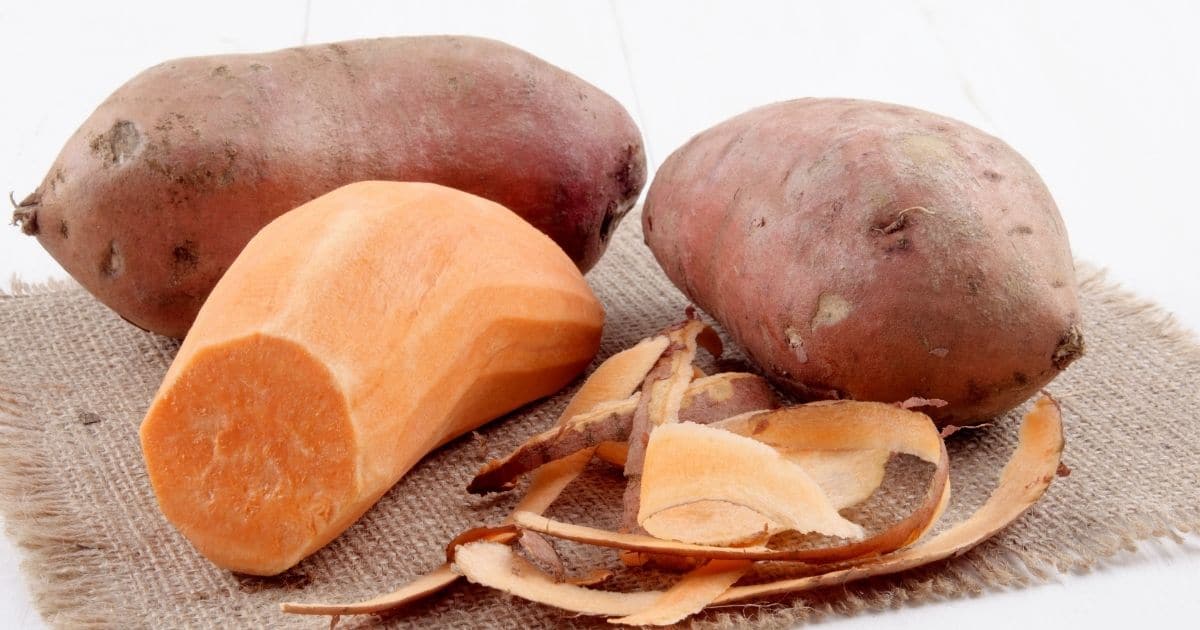
Scrub the sweet potatoes to get rid of surface dirt, peel them, and cut them into cubes.
Step 3
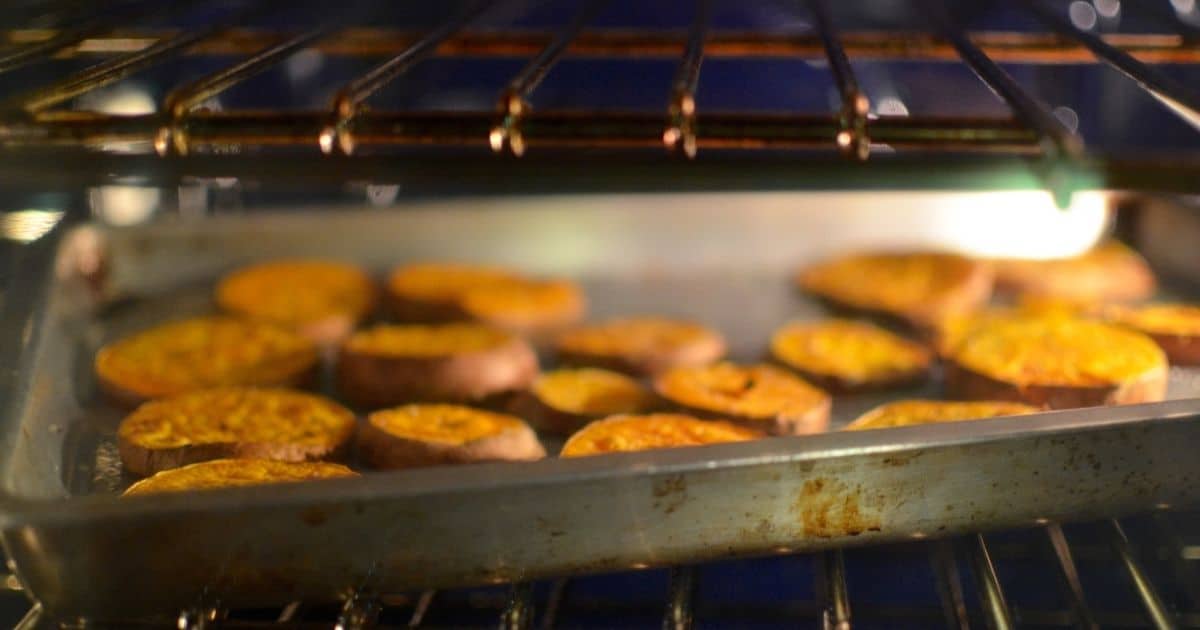
Place the sweet potato cuts on the oven rack and leave to bake until they are tender.
Step 4
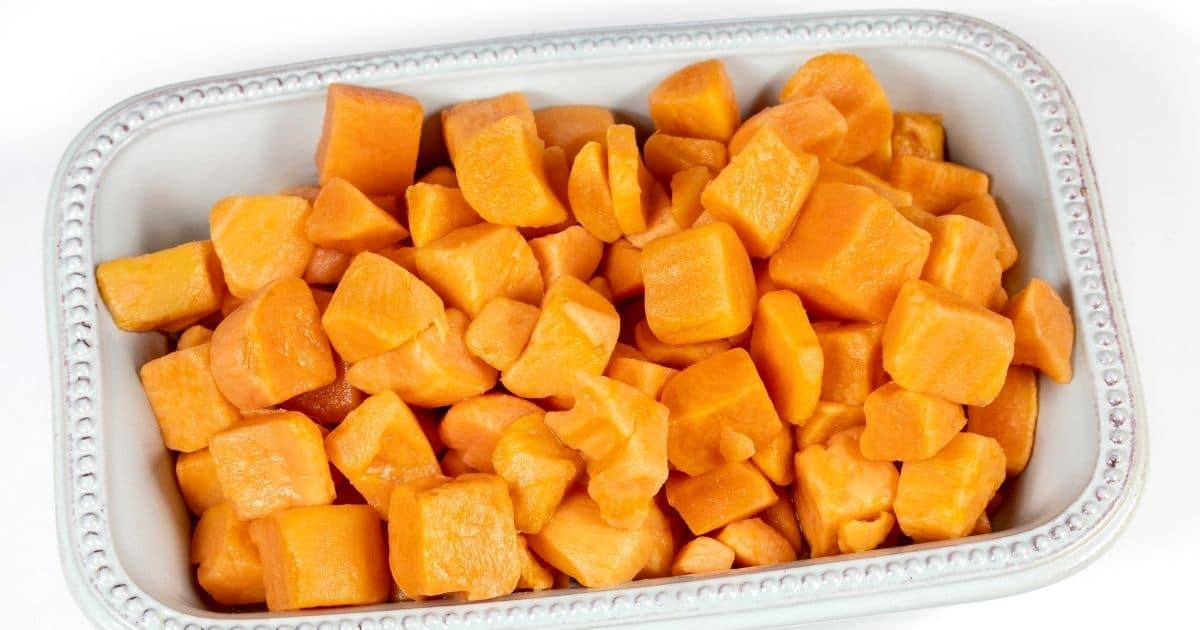
Take the baked sweet potatoes out of the oven and leave them at room temperature to cool down.
Step 5
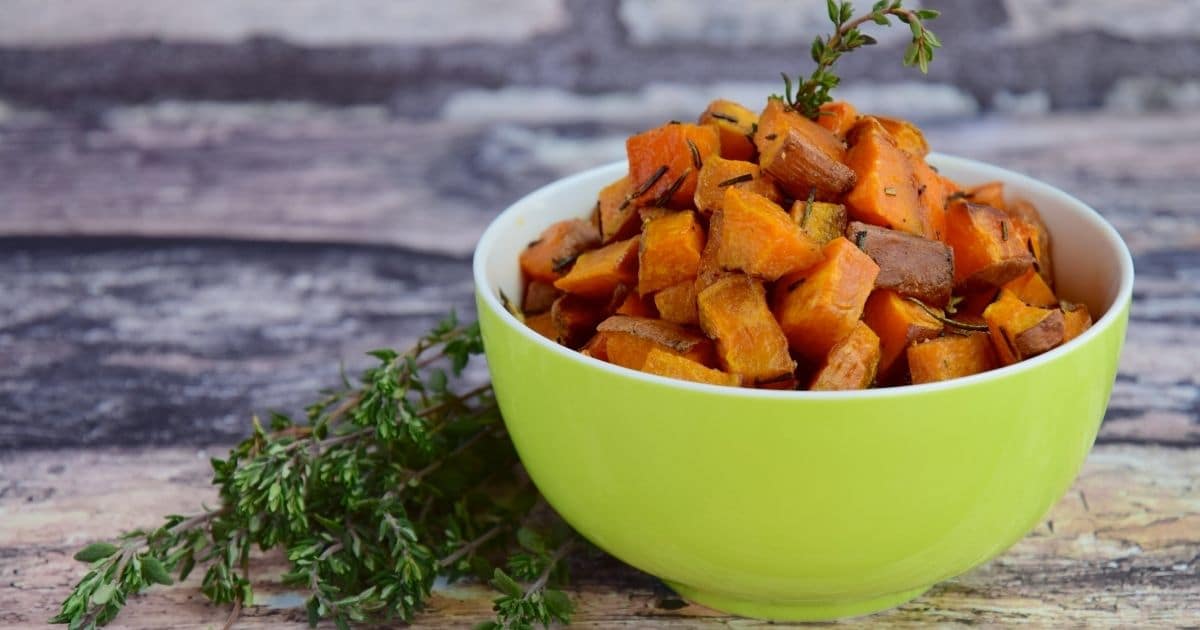
Place the potatoes in a big bowl. and mash them until they are smooth
How Do You Freeze Cut Up Sweet Potatoes?
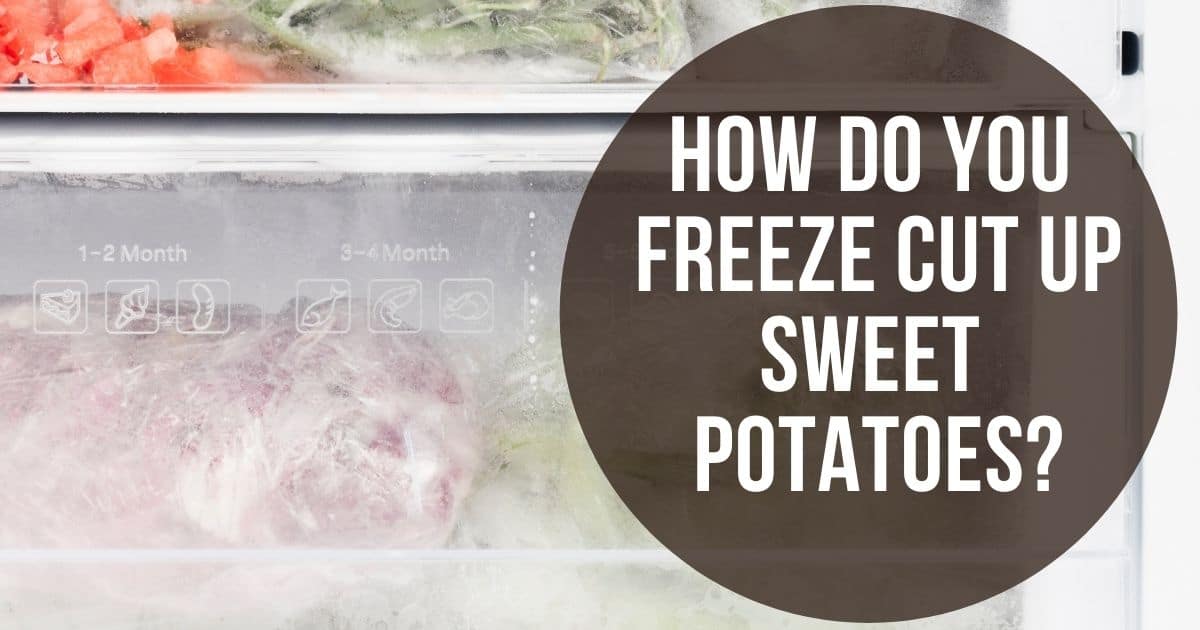
Sweet potatoes can be sliced, diced, or cut into chunks of your preferred size before freezing. However, raw cut up sweet potatoes need to be blanched before freezing to maintain texture, firmness and prevent colour change.
To freeze cut up sweet potatoes,
Step 1
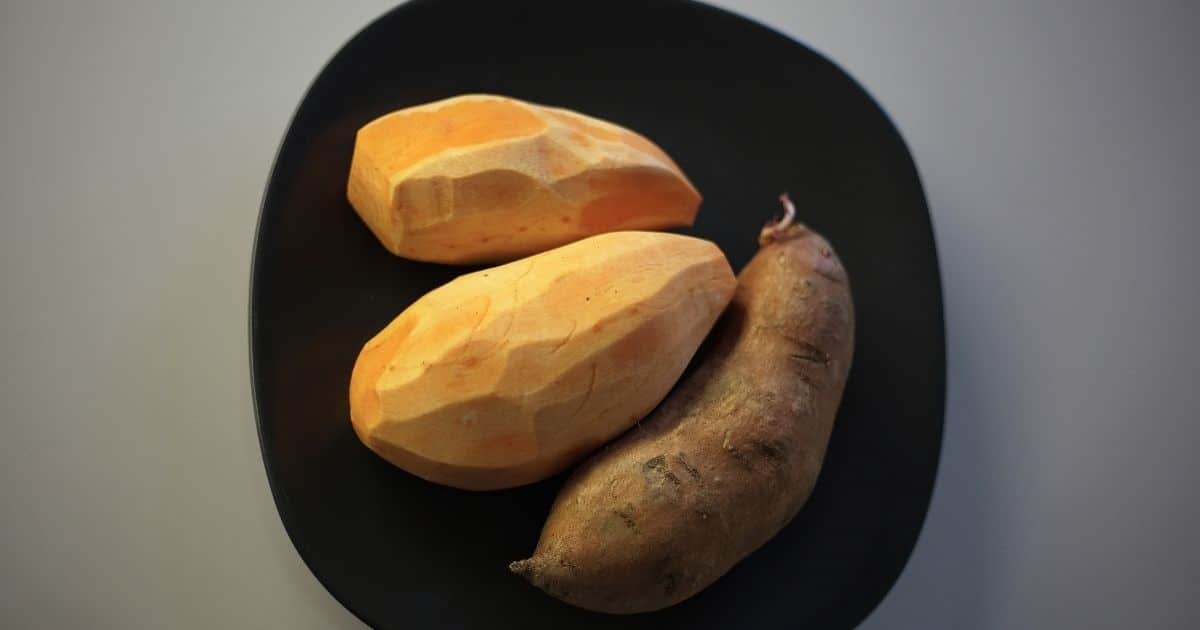
Scrub the sweet potatoes and peel the skin off.
Step 2
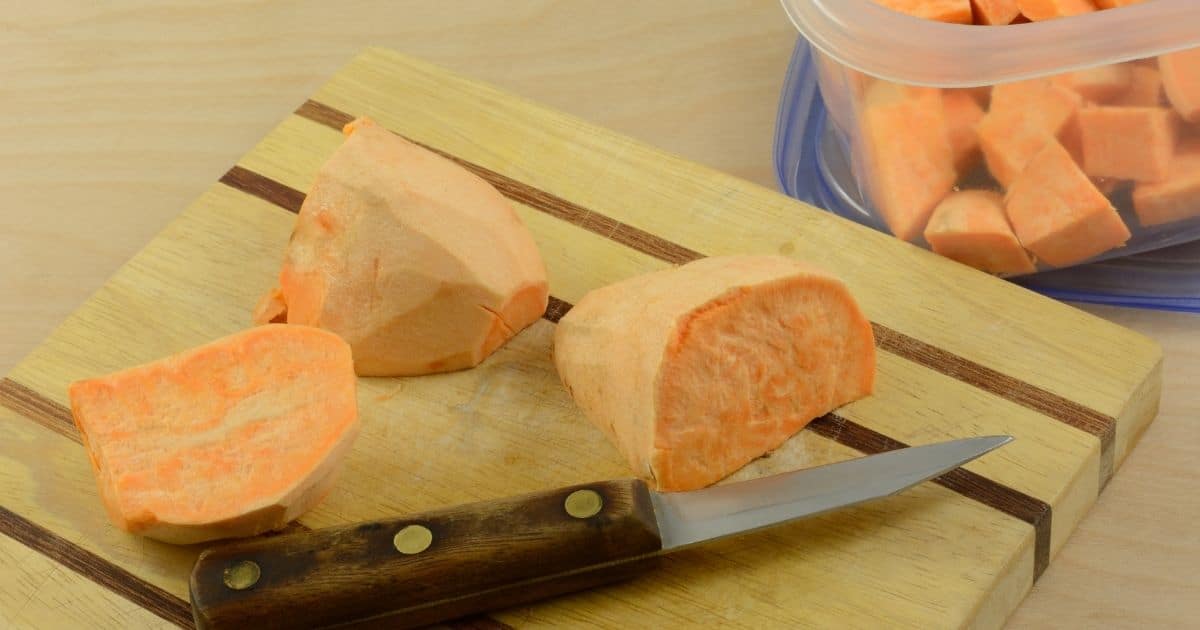
Cut into desired sizes, preferably into fries or chunks as this makes it easy to achieve similar-sized cuts. It is excellent to keep the cuts at relatively the same size to ease the blanching process.
Step 3
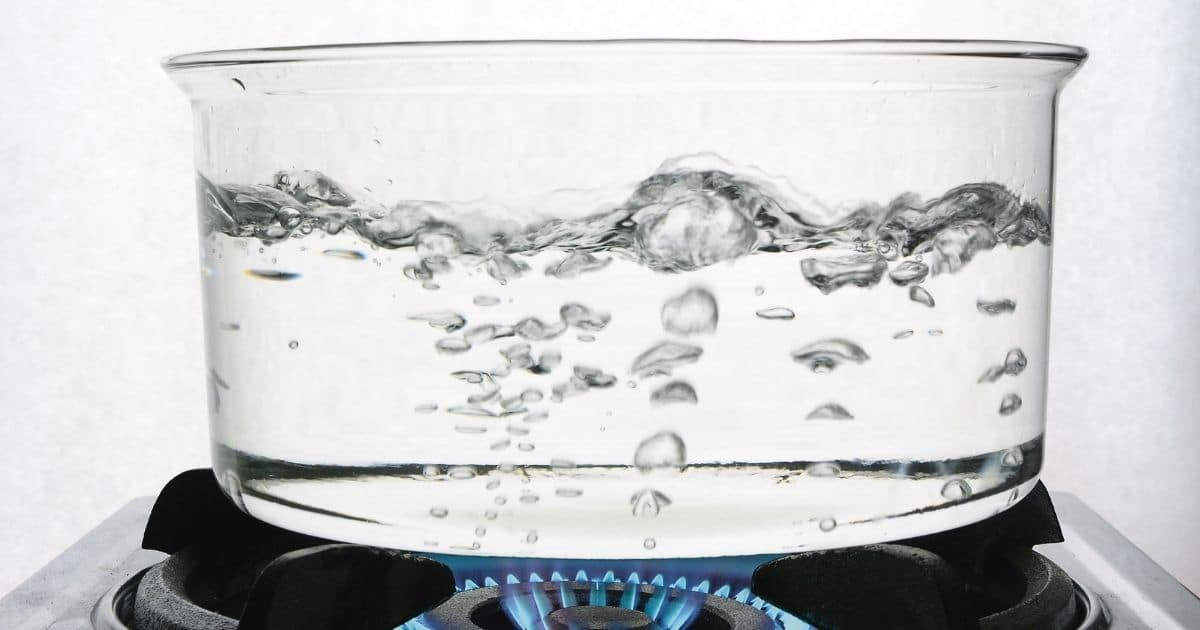
Fill a pot with water and bring it to a boil. Fill a different bowl with ice water and set it aside.
Step 4
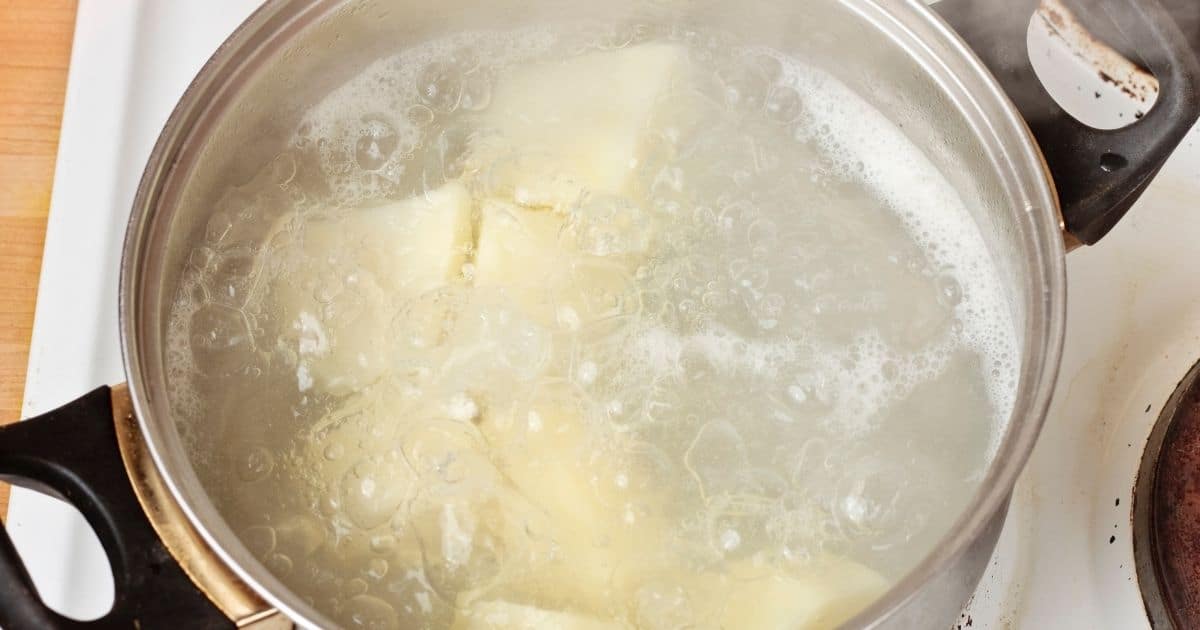
Add the cut-up sweet potatoes and leave them in the boiling water for two minutes maximum.
Step 5

Take out the sweet potatoes from the boiling water and immediately put them in the bowl of ice water to halt the cooking process and preserve firmness.
Do not delay this process. Ensure the potatoes are added to the cold icy water straight away or your potatoes will be cooked instead of blanched.
Step 6

Once the sweet potatoes are cool, discard the ice water and dry the sweet potatoes. Get rid of visible moisture using a clean kitchen towel.
Step 7
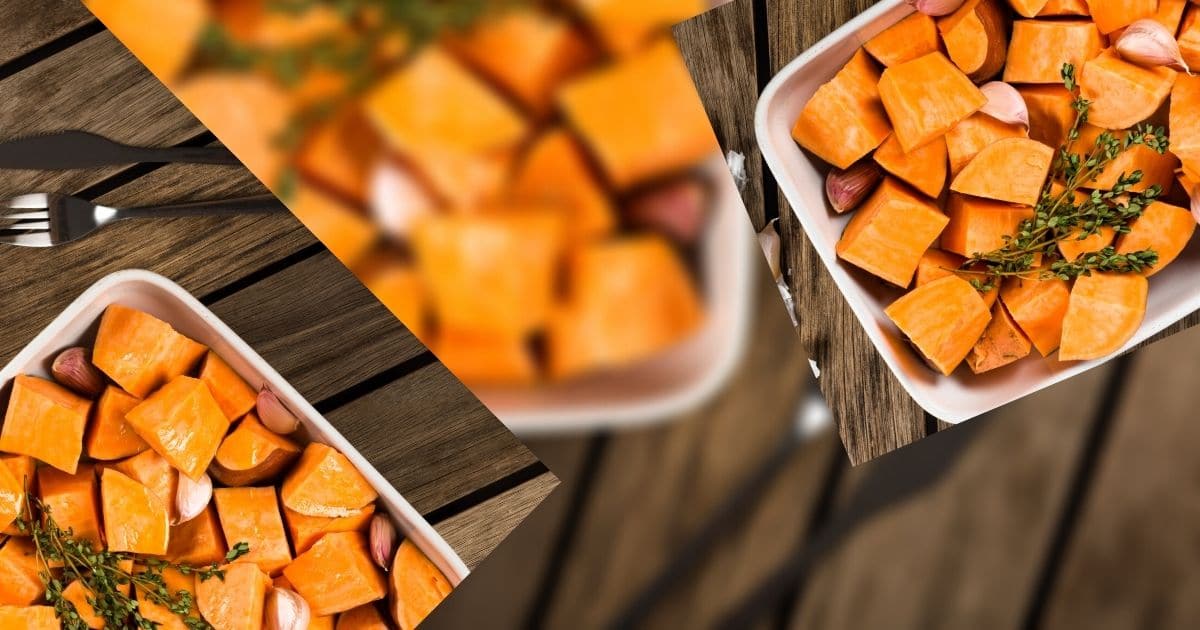
For easy access, divide the sweet potatoes into small portions or sizes. Put the split portions into different freezer bags.
Step 8

Extract the air from the freezer bag before sealing it. In the absence of a vacuum sealer, employ the straw method. Close the freezer bag, leaving a small opening that a straw can pass through. Insert a straw and suck out all the air as much as possible.
Step 9
Label your bags of sweet potatoes with dates and put them in the freezer. Labeling with dates helps you track how much time your frozen potato has spent in the freezer.
How To Freeze Sweet Potatoes
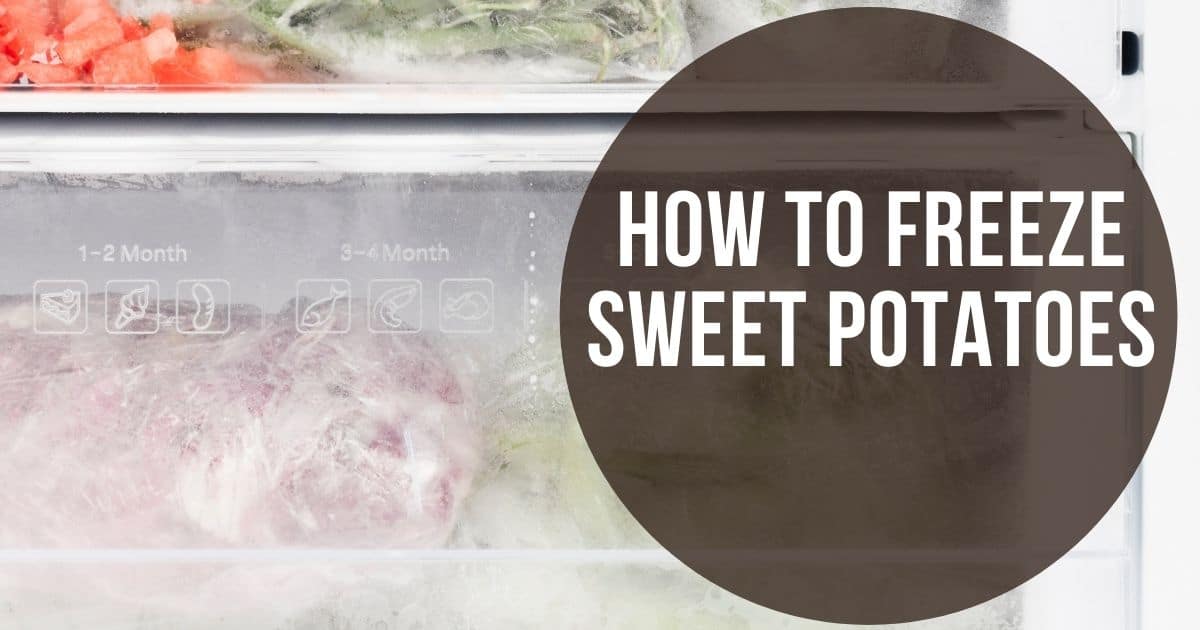
Blanched sweet potatoes, boiled sweet potatoes, mashed sweet potatoes, and oven-baked sweet potatoes have slight differences in their freezing processes.
We have extensively discussed how to freeze raw potatoes in the “How Do You Freeze Cut Up Sweet Potatoes?” section above.
Let’s discuss how to freeze the cooked potatoes.
How to freeze boiled potatoes
To freeze boiled potatoes, you have to boil the potatoes first. Check the “Is It Okay To Freeze Cooked Sweet Potatoes?” section for extensive details on how to boil your potatoes before freezing. Once you have the boiled sweet potatoes ready, start by,
Step 1
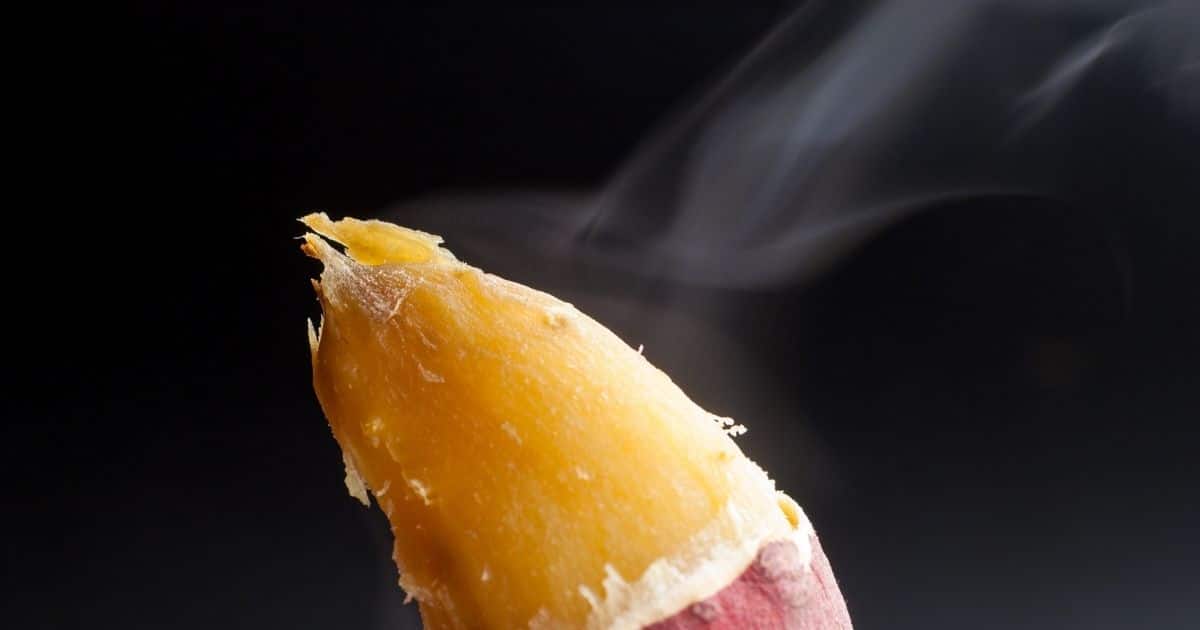
Leave the boiled sweet potatoes for some time at room temperature for no more than 2 hours, till they are cooled down completely.
Step 2
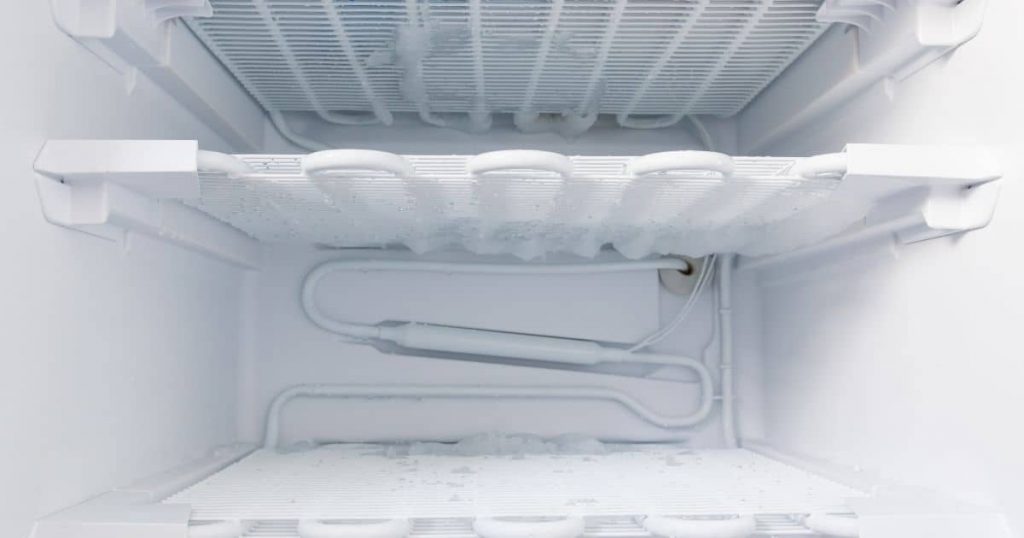
Place the boiled sweet potatoes on a large plate or parchment paper-lined baking sheet. Put in the freezer and flash freeze for no more than 20 minutes or until the sweet potatoes are firm.
Flash freezing for longer may lead to freezer burn. While freezer burn is something we want to avoid, it does not make your food unsafe for consumption.
Step 3

Once the sweet potatoes are firm, take them out of the freezer and put them in a resealable freezer bag or zip lock bag. Flash-freezing prevents the sweet potatoes from clumping together.
Step 4
Label the freezer bags or zip lock bags with dates, put them in the freezer, and your boiled sweet potatoes will be good for as long as ten months.
How To Freeze Baked Sweet Potatoes
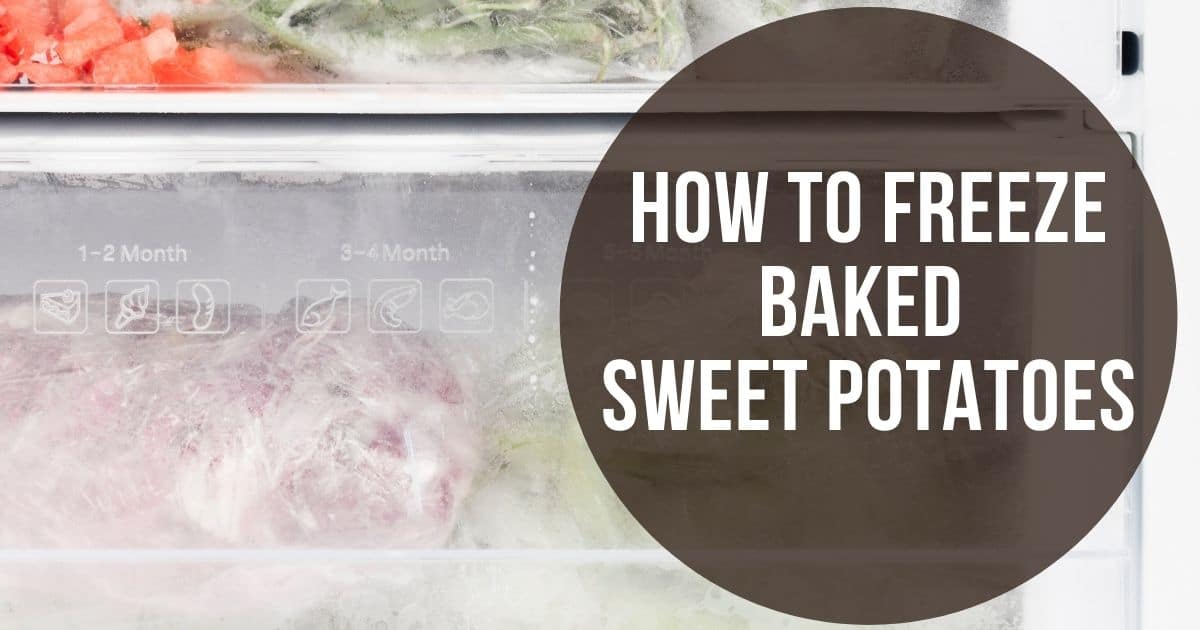
To freeze baked sweet potatoes, follow the extensive process explained in the “Is it okay to freeze cooked sweet potato?” section above to bake your sweet potatoes. Once you have your baked sweet potatoes: follow the steps below to freeze them:
Step 1
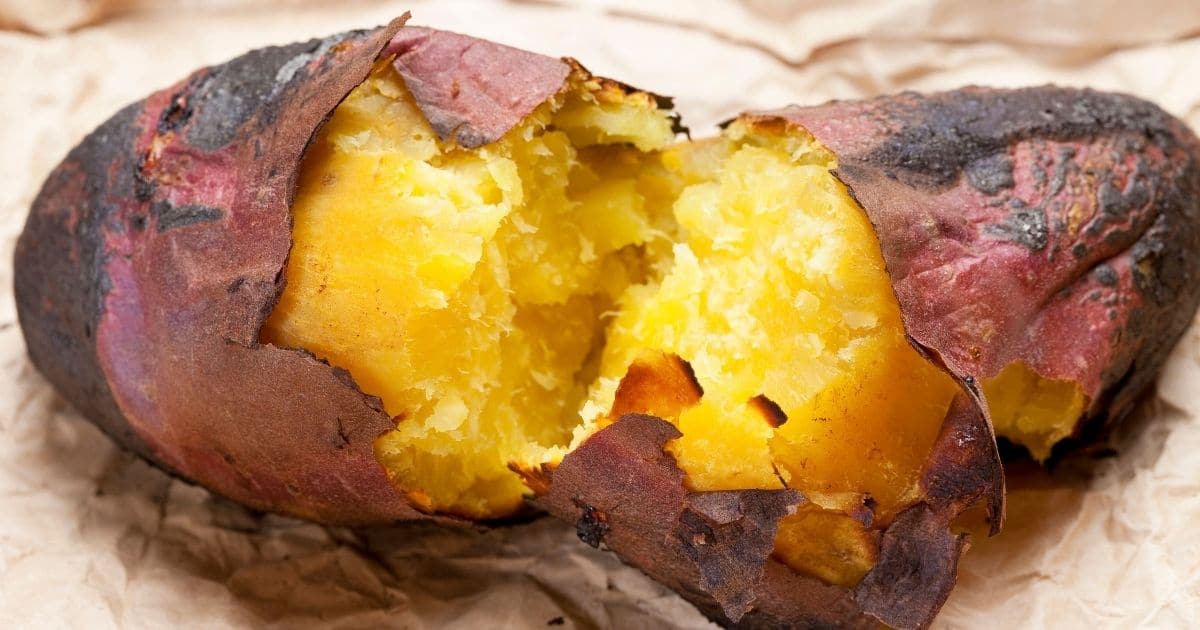
Leave the baked sweet potatoes out at room temperature for no more than 2 hours until they are cooled.
Step 2
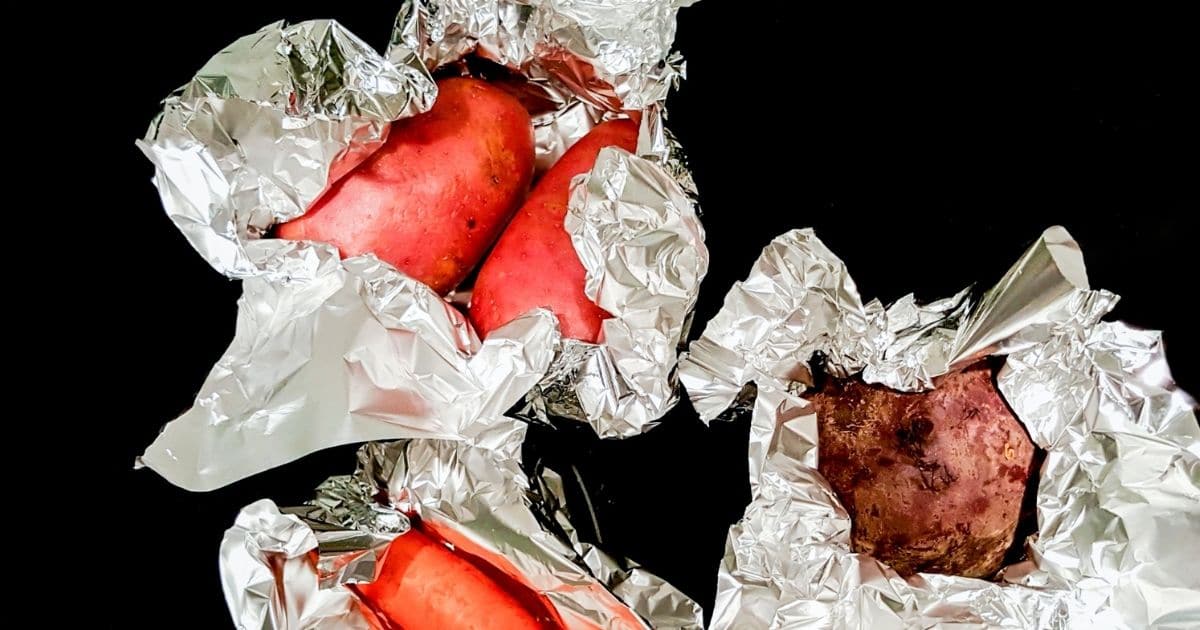
Wrap each piece of sweet potato with a foil, making sure not to leave any part exposed to prevent freezer burn.
Step 3
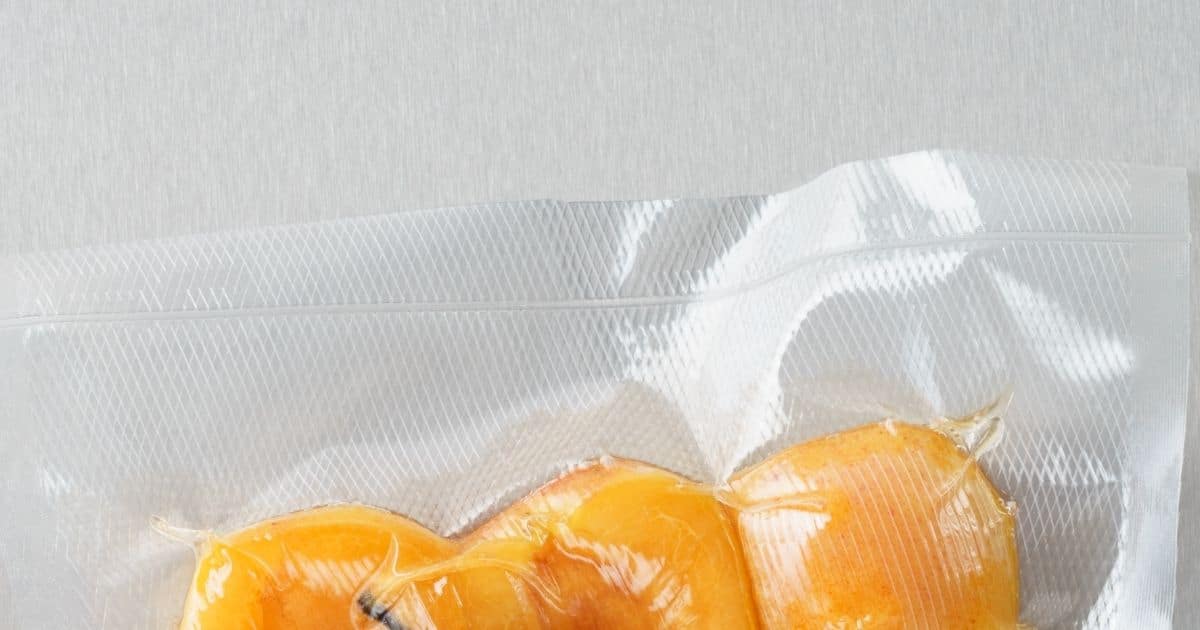
Put the wrapped sweet potatoes in a freezer bag, vacuum-sealed bag, or air-tight containers. Remove the air as much as possible from the bag. Use the straw method in the absence of a vacuum sealer. To use the straw method, leave an opening just enough for a straw to pass through. Insert a straw and suck out the air as much as possible.
Step 4
Label the freezer bags or zip lock bags with dates to keep track of storage time and put them in the freezer. (Source: Simplyhealthyfamily.org)
How To Freeze Mashed Potatoes
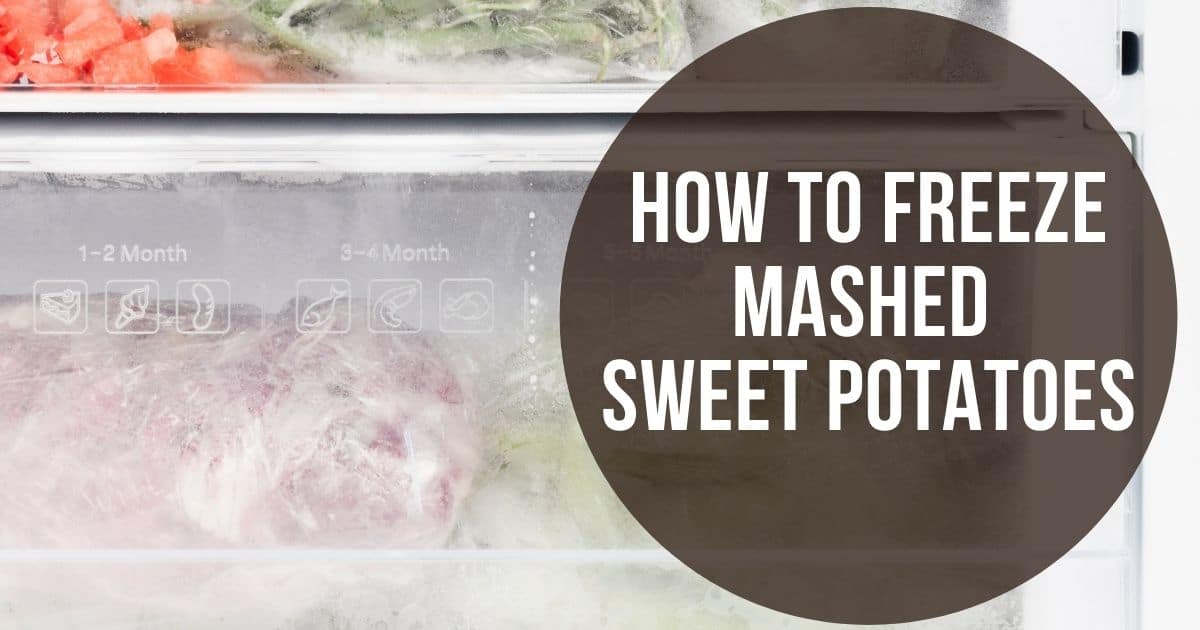
To freeze mashed sweet potatoes, begin the process by mashing your sweet potatoes. The mashing process has been detailed extensively in the “Is It Okay To Freeze Cooked Sweet Potatoes?” section. Please refer to the section for the mashing process.
Once you have mashed the sweet potatoes,
Step 1
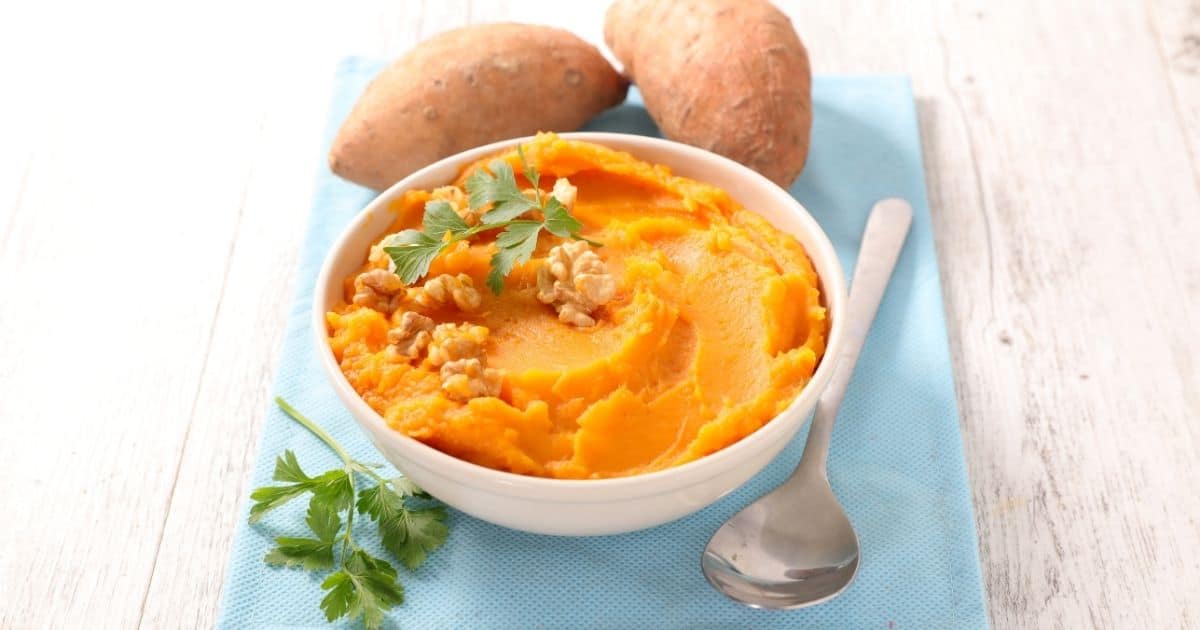
Ensure they are completely cooled. If not, let them rest for some time until they become cool.
Step 2
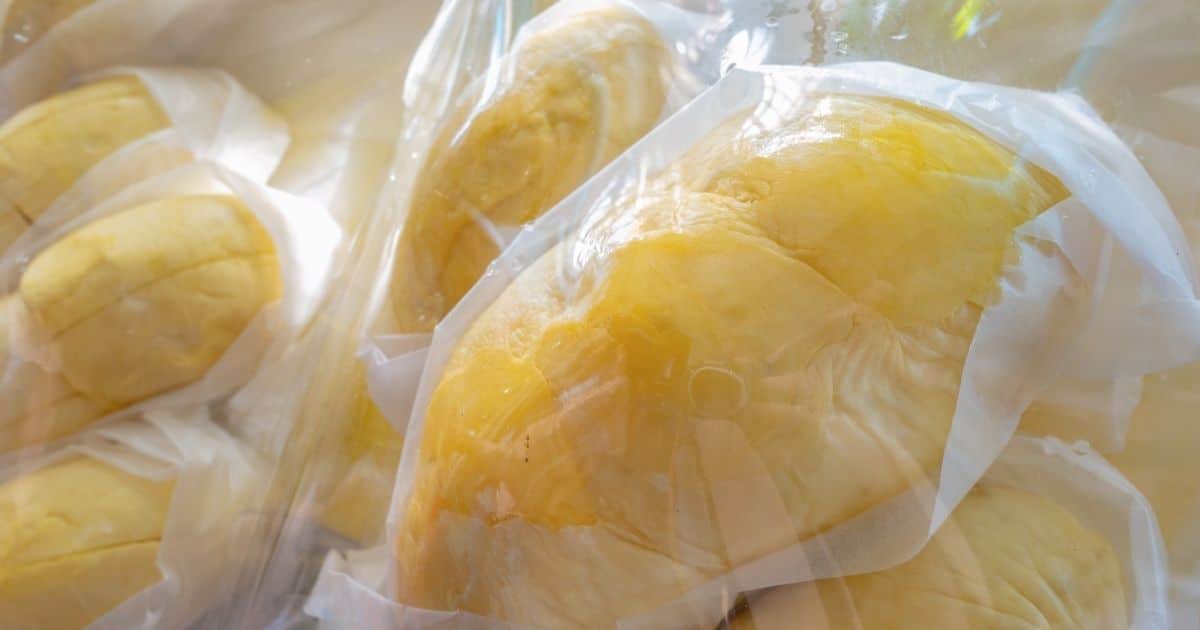
Pack the mashed sweet potatoes into freezer bags or zip lock bags. You may want to divide into sizable portions that you can use in one go.
Step 3
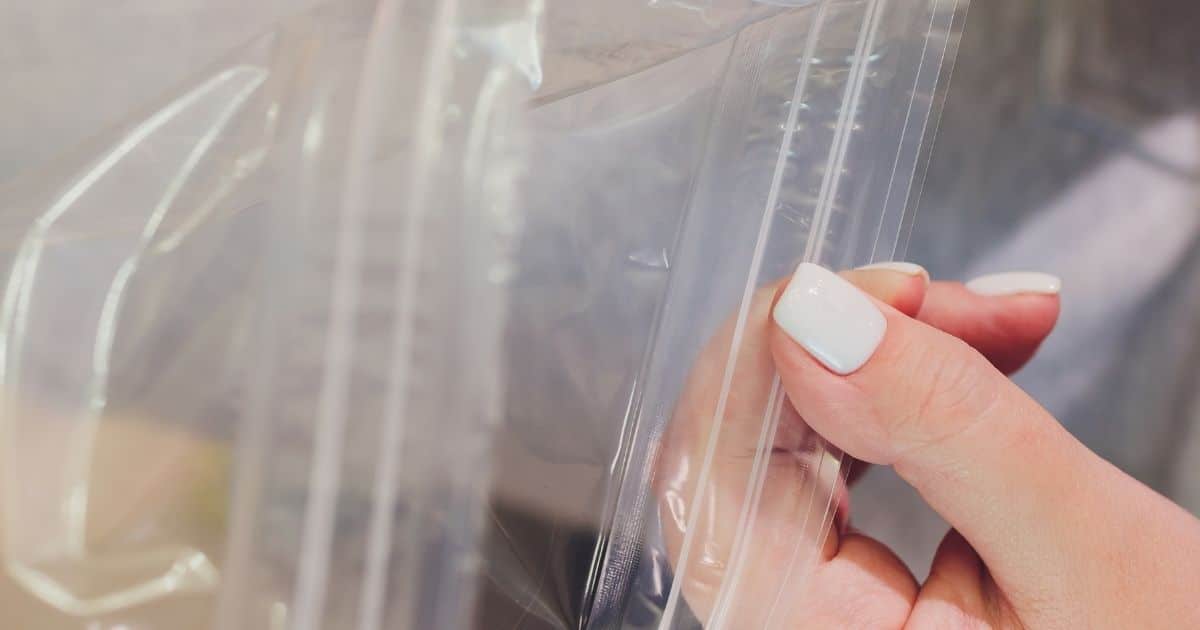
Flatten the freezer bags and try to get trapped air out completely. You can use a vacuum sealer or use a straw to suck out excess air.
Step 4
Label your packed sweet potatoes with dates and place them in the freezer.
How Long Can You Freeze Sweet Potatoes?
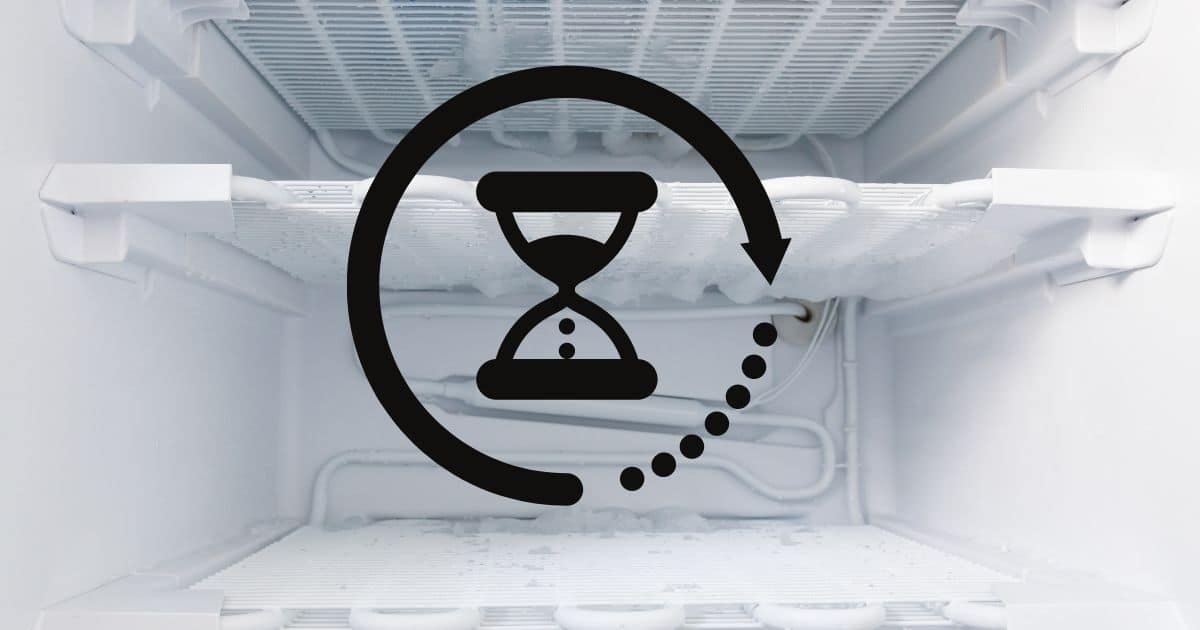
Freezing increases the storage time of sweet potatoes significantly as opposed to the amount of time they can spend in the refrigerator. Cooked sweet potatoes, whether mashed, baked, or boiled, will only last for 3-5 days in the refrigerator. Raw sweet potatoes will last for about one to two weeks in the pantry.
On the other hand, whether cooked or pre-cooked, frozen sweet potatoes will last for about 10-12 months in the freezer.
Food stored in the freezer will maintain the best quality throughout the storage period. If after defrosting, your potatoes have a foul smell or look off in their appearance, discard them immediately.
How To Defrost Sweet Potatoes
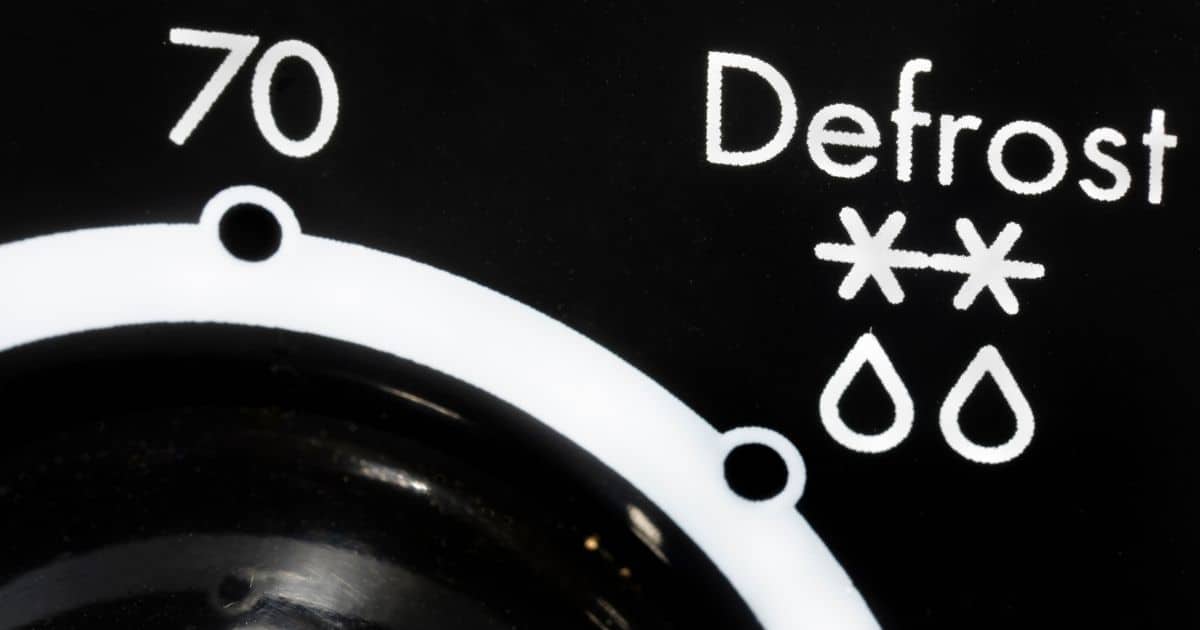
Defrosting sweet potatoes comes with several options. Some of the options will work for pre-cooked and cooked sweet potatoes while others are best suited for cooked sweet potatoes. Let’s look at the options in detail.
- Refrigerator
- Oven
- Microwave
- Incorporate directly
To defrost frozen sweet potatoes using the refrigerator, take out the sweet potatoes from the freezer and transfer them to the fridge. Leave in the refrigerator overnight so the sweet potatoes can defrost slowly.
Cooked sweet potatoes that have been thawed using the refrigerator can be stored there for about 3 – 4 days before cooking.
Defrosting frozen sweet potatoes by baking or roasting in the oven is an excellent option for frozen baked sweet potatoes. Bring out the frozen sweet potatoes from the freezer, and remove the foil used to wrap each piece. Wrap them with a new foil and bake for up to twenty-five minutes with the oven set to 350°F (180°C).
Defrosting frozen sweet potatoes with the microwave is a straightforward process. Take out the frozen sweet potatoes from the freezer, put them in a microwave-safe bowl, and set the microwave to the defrost setting. The microwave method may leave your sweet potatoes a little dry.
Frozen sweet potatoes defrosted with the microwave should be eaten immediately, or you may run the risk of food poisoning. The microwave brings food to optimal temperature for bacteria to grow in large quantities over a short period of time.
The last method of defrosting is to add the frozen sweet potatoes directly into your stovetop recipes. Add a few minutes to the total cook time to make up for the temperature drop when you add the frozen sweet potatoes directly into your cooking.
How To Defrost Sweet Potato Puree
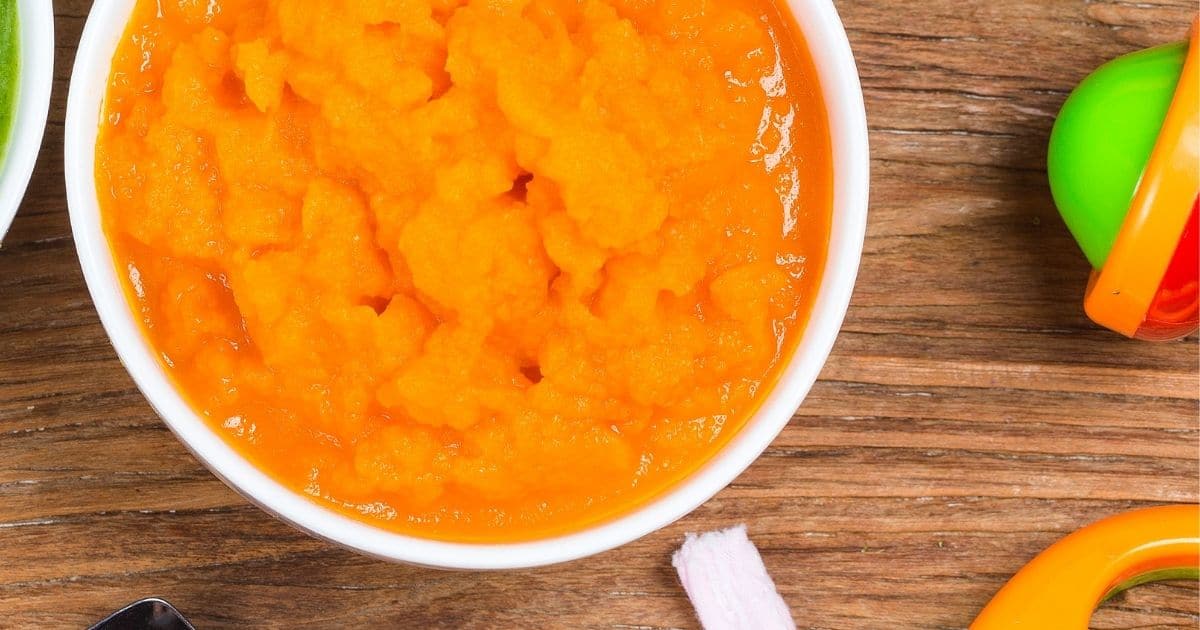
Frozen sweet potato puree is best defrosted by reheating on the stovetop. Using a microwave may make the texture rubbery. To defrost sweet potato puree, take the frozen mashed potatoes out of the freezer.
Reheat the sweet potato puree in a pan till they feel like mashed potatoes again or get to your desired consistency.
Conclusion
You don’t have to wait till Thanksgiving to enjoy nutrient-rich and great-tasting sweet potatoes. By freezing sweet potatoes when they are in season, usually between August to November, you get to enjoy them when they are out of season as well.
The abundance of sweet potatoes can leave you wondering what to do with all the tubers you grabbed. There’s no need to fret, just freeze them and they’ll be good to go for another 10-12 months.
So, the next time you have a pantry filled with sweet potatoes, worry less about what to do with them. Follow the detailed guide on freezing sweet potatoes for future use and enjoy the rich flavor and nutritional benefits with your family.
